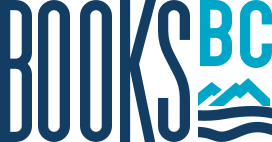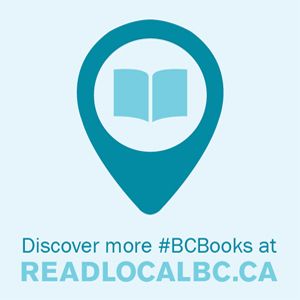Our most recent reports
for Publishers
This section is primarily for small or self-publishers looking for information on the business of publishing. If you have made your way to this site, you are probably already aware of the complexity of our business.
Many writers choose to self-publish for a variety of reasons, among them control over the book, time-sensitivity of the subject matter, frustration with a traditional publisher’s schedule or inability to find a publisher. Self-publishing is a perfectly legitimate route that can be enormously rewarding but it needs to be approached with a full understanding of the benefits and the challenges.
Self-publishers basically take on the role of the publisher determining print runs, working with designers, producing the title to be sent to the printer, marketing the book, and, of course, paying for all these services. Often self-publishers over print, so make sure you have a good sense of potential sales of your title. Also, think about how you will distribute the copies of your book; book distributors for small or self-publishers are not easy to find. Also, make sure to build into the retail price of your book the cost of distribution but be careful not to price your book so high no one will buy it or distribute it. Self-publishers should be aware that traditional media generally will not review self-published books and many retail outlets will not open accounts for one-book publishers.
Despite these considerations, if you have energy and passion, and a good business sense, self publishing your book can be done very effectively. There are numerous books on the subject to help the self-publisher make informed decisions each step of the way.
Below are the answers, in alphabetical order, to the most frequently asked questions we receive at the ABPBC:
Barcodes
In order to get a barcode, the publisher must have an ISBN (see below). Check with your printer to find a provider.
Copyright
To find out more about copyright, what it is, what it covers, automatic copyright, duration, etc. visit the Canadian Intellectual Property Office Guide to Copyright page.
Design
Book design, interior and exterior, is crucial to the success of a book. It should reflect the content of the title and make the reading experience a joy. A well-designed book is an important marketing investment.
Distributors
Small press distribution is a challenge. ABPBC members, Heritage Group Distribution and Sandhill Book Marketing, supply independently published Canadian books to retail accounts across Canada. Check their websites for more information on the genres each carries as well as their submission guidelines.
Editing
Small, self or on-demand published authors will all need the assistance of a qualified book editor. See the Editors’ Association of Canada for information on the business of hiring an editor and an online directory of editors.
Funding
Governments at both the federal and provincial level understand the value of Canadian culture and have committed to supporting it in a variety of ways. Eligible publishers must have a developed list of titles, an editorial board, a method of distribution, effective promotion and marketing strategies, and sound business practices in order to qualify for government funding for the publishing of books. For further eligibility criteria see government websites.
At the federal level, the Canada Council for the Arts offers the Emerging Publisher Grant (minimum of 4 and a maximum of 15 eligible titles in print), Block Grants for established publishers (16 eligible titles in print), Art Book support programs, and translation grants. Publishers must be Canadian-owned companies. Book publishers receiving Canada Council support are also eligible to apply for Translation Grants, Author Promotion Tour assistance, grants for the publication of art books, and for Flying Squad (consultancy) grants.
Canadian Heritage offers the Canada Book Fund whose objective is to “ensure access to a diverse range of Canadian-authored books in Canada and abroad”. The program has two components: Support for Publishers and Support for Organizations and Associations. Eligible book publishers must have completed 36 months of operation, be Canadian-owned and –controlled and meet financial viability criteria. In addition, the publisher must have an active, ongoing publishing program with a minimum of 15 new, Canadian trade books or 10 education or scholarly books in print and meet a minimum sales threshold.
Livres Canada Books formerly the Association for the Export of Canadian Books administers the Foreign Rights Marketing Assistance Program (FRMAP) component of the Canada Book Fund. The objective of Livres Canada Books is to “develop and sustain Canadian publishers’ export sales”. LCB also administers a mentoring program.
At the provincial level, the BC Arts Council offers the Title Assistance for Book Publishers (4 eligible titles in print) and the Block Funding for Publishers (8 eligible titles in print) programs.
BC publishers who are eligible for Canada Book Fund support and who file income tax will also be eligible for the BC Book Publishers Tax Credit, a refundable tax credit for BC book publishing corporations.
On-demand publishing
On-demand publishers are not publishers. They are a business offering writers a publishing service for which the client pays. They may assist with all aspects of the publishing process or they may only offer design and production. The client usually needs to take on their own promotion, marketing and distribution of their books.
Printers
This is not a comprehensive listing of printers in Canada or abroad but represents printers who have worked with Books BC members:
A. J. Graphics
C&C Offset
Friesens Corporation
Hemlock Printers
Hignell Book Printing
Houghton Boston
Island Blue Print Co. Ltd.
Kings Time Industries (print broker for Asia)
Kits Graphics
Kromar Printing
Marquis
Met Fine Printers
PrismTech Graphics Ltd.
Printcrafters
Sing Cheong Printing
Transcontinental Printing
TPH (The Printing House Ltd)
Victoria Bindery
Webcom
Library and Archives Canada Services: Cataloguing in Publication, ISBN, Legal Deposit & New Books Service
Cataloguing in Publication (CIP) enables the cataloguing of books before they are published. The information appears on the copyright page of the book. For more information on what CIP is, how to apply and timelines, go to the LAC website.
ISBN is the 13-digit identifier unique to a particular title. All books should have an International Standard Book Number (ISBN). It identifies the European article number (EAN), country of origin, publisher prefix, and title identifier. It is used by everyone in the supply chain to order books. ISBNs are available from LAC.
Legal Deposit is the means by which a comprehensive national collection is gathered together as a record of the nation’s published heritage and development. Copies of all books published in Canada must, by law, be deposited with LAC. Click here to view an information sheet about legal deposit. For more details visit the LAC website.
The New Books Service (NBS) provides the latest information on current and forthcoming Canadian books. The NBS database is derived from information received directly from publishers through the Library and Archives Canada’s (LAC) Cataloguing in Publication (CIP) program. This prompt distribution of cataloguing information makes publishers books better known to Canadian libraries.
Book Publishing Freelancers from Diverse Communities Database
Looking to contract a freelancer with experience in book publishing? The Association of Canadian Publishers (ACP) maintains a database of book publishing freelancers from diverse communities.
The ACP’s Diversity and Inclusion Committee has identified a number of initiatives to address the under-representation of racialized and marginalized people working in the Canadian book publishing industry. Publishers continue to seek ways to expand their professional networks to include those from diverse communities. This is particularly important for smaller publishing firms that make up the majority of ACP’s membership. With few staff positions and limited opportunities to hire full-time staff, contract and freelance work is a reality of their publishing operations and presents an opportunity for ACP to help publishers diversify their professional networks. ACP recognizes that engaging more freelancers from diverse communities is not a long-term solution to this challenge but it is a preliminary step and initiative we can undertake immediately.
ACP’s aim is to help build the network of freelance publishing experts from diverse communities: all those who self-identify with BIPOC communities, LGBTQIA+ communities, those with a disability/disabilities, and other underrepresented groups are encouraged to participate. Listings from freelancers with all levels of experience, from those early in their publishing career to publishing veterans, are welcome.
Accessible Publishing Resources from the National Network for Equitable Library Services (NNELS)
NNELS maintains a repository of resources to support accessible publishing practices that includes topics like image descriptions, working with conversion houses, ebook producers, and InDesign, and conducting accessibility evaluations. The NNELS-produced resources on this page have been written by NNELS’ team of Accessibility Testers who “have expert knowledge in the areas of accessibility testing, analysis, software development, and leadership. Our testers have lived experience with a range of print disabilities, including blindness, low vision, and learning disabilities.”




 Suite 600-402, West Pender Street, Vancouver, BC, V6B 1T6 | Tel: 604.684.0228
Suite 600-402, West Pender Street, Vancouver, BC, V6B 1T6 | Tel: 604.684.0228